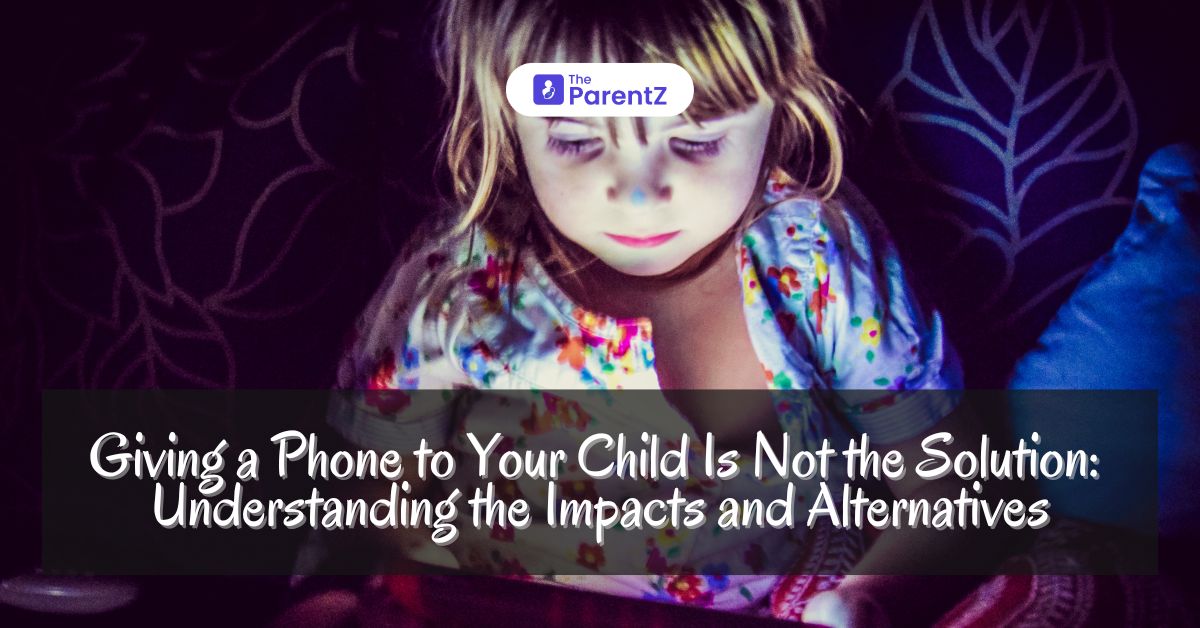In today’s digital age, giving a phone to children has become a common practice among parents seeking to keep them entertained, connected, or even managed. While smartphones offer numerous benefits, relying on them as a primary solution to parenting challenges can have significant drawbacks. This article delves into why giving a phone to your child is not the best solution, exploring the impacts on their development and presenting healthier alternatives.
The Psychological and Developmental Impacts of Smartphone Use in Children
Attention and Focus
Children’s brains are still developing, and their ability to concentrate is crucial for learning and growth. Excessive smartphone use can negatively affect attention spans, making it difficult for children to focus on tasks, both academic and recreational. Studies have shown that constant exposure to rapid stimuli from phones can lead to attention disorders, such as ADHD.
Social Skills Development
Interpersonal skills are developed through face-to-face interactions. When children spend significant time on their phones, they miss out on essential social cues, such as body language and tone of voice. This can hinder their ability to develop empathy, understand social norms, and build meaningful relationships.
Sleep Disruption
Blue light emitted by screens can interfere with the production of melatonin, a hormone that regulates sleep. Children who use phones, especially before bedtime, often experience disrupted sleep patterns, leading to insufficient rest. Poor sleep can affect mood, cognitive function, and overall health.
Mental Health Concerns
Research indicates a strong correlation between excessive smartphone use and mental health issues in children, including anxiety, depression, and loneliness. Social media, a significant component of smartphone use, can expose children to cyberbullying, unrealistic expectations, and a constant comparison to others, all of which can harm their self-esteem and well-being.
Why Parents Rely on Phones and the Real Solutions
Temporary Peace
Parents often give phones to their children to keep them quiet or occupied, especially in public places or during busy times. While this provides a quick fix, it does not address the underlying needs of the child or teach them how to manage boredom or discomfort.
Perceived Safety
Many parents believe that giving their child a phone enhances their safety, allowing them to stay connected. While this is a valid concern, there are other ways to ensure a child’s safety without over-relying on a smartphone.
Educational Justifications
Some parents justify phone use by highlighting educational apps and games. While there are educational benefits, the key is moderation and ensuring that screen time is balanced with other developmental activities.
Healthier Alternatives to Smartphones
Encouraging Physical Activity
Physical activity is essential for a child’s physical and mental development. Encourage your child to play outside, join sports teams, or engage in physical hobbies. Activities like biking, swimming, or even family walks can reduce reliance on screens and promote overall health.
Promoting Creative Play
Creative play stimulates imagination and problem-solving skills. Provide your children with toys that encourage creativity, such as building blocks, art supplies, or musical instruments. These activities can be more engaging and developmentally beneficial than screen time.
Fostering Reading Habits
Books are a great way to entertain and educate children without the negative impacts of screen time. Encourage reading by visiting libraries, creating a cozy reading nook, or starting a family reading time. Choose a variety of genres to keep their interest piqued and expand their horizons.
Building Strong Social Connections
Arrange playdates, family gatherings, or community activities that encourage social interaction. These experiences help children develop vital social skills and build strong, supportive relationships. Participation in group activities like scouting or team sports also fosters teamwork and cooperation.
Establishing Healthy Tech Habits
Setting Clear Boundaries
Establish rules regarding smartphone use, such as time limits and no-phone zones (like during meals or before bedtime). Consistent boundaries help children understand that phones are a tool, not a necessity.
Leading by Example
Children imitate their parents’ behavior. Demonstrate healthy tech habits by limiting your own screen time, engaging in tech-free activities, and showing the importance of face-to-face interactions.
Educating About Responsible Use
Teach your children about the potential dangers of the internet and social media. Discuss topics like cyberbullying, privacy, and the importance of critical thinking when consuming digital content. This knowledge empowers them to use technology responsibly.
Conclusion
While giving a phone to your child might seem like a convenient solution to various parenting challenges, it is not without significant drawbacks. The impacts on attention, social skills, sleep, and mental health are substantial and warrant careful consideration.
By exploring and implementing healthier alternatives, parents can foster their children’s development more holistically. Encouraging physical activity, creative play, reading, and social interactions, coupled with establishing healthy tech habits, can significantly enhance a child’s well-being and equip them with skills that will benefit them throughout life. Understanding the profound impact of parental choices is the first step towards more intentional and effective parenting.





Be the first one to comment on this story.